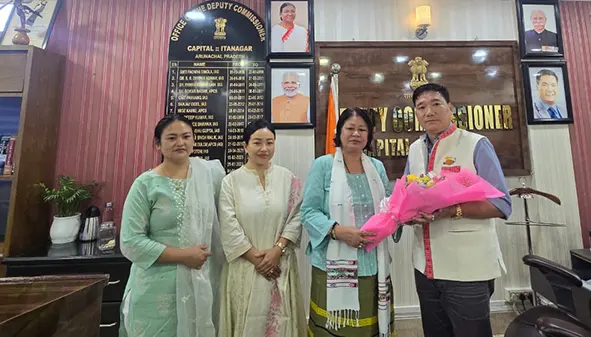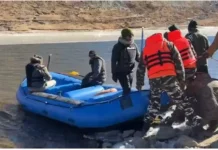ITANAGAR, 17 Oct: The Arunachal Pradesh State Commission for Women (APSCW) has urged the district administration and the police of the Itanagar Capital Region (ICR) to strictly regulate bars and nightclubs and take firm measures against alleged immoral activities involving adolescent girls.
At a meeting held here, a team led by APSCW Chairperson Taga Yalem Burang called on ICR Deputy Commissioner Toko Babu and discussed growing concerns over the mushrooming of bars and nightclubs in the capital area.
The APSCW highlighted reports that some of these establishments operate beyond permitted hours and allegedly engage underage girls, potentially contributing to the rise in HIV/AIDS and related social issues, a communiqué informed here on Friday.
The APSCW referred to the DC’s February 11 order, which mandates adherence to government guidelines, including bar operating hours and verification of customers’ age through Aadhaar or valid ID.
The commission emphasised the need for authentic and periodic inspections to ensure compliance and to curb unregulated operations in the city.
The commission also requested for strict implementation of the Arunachal Pradesh Tenancy Act, 2022 and the NDPS Act, 1985, and sought directions to landlords and flat owners to prevent illegal or immoral activities such as drug use, illegal gatherings, and antisocial conduct in private and public premises.
It recommended periodic joint inspections by police and enforcement agencies in suspected areas.
Expressing deep concern over the involvement of underage girls in immoral activities and flesh trade, the commission observed that the interlinked issues of drugs, HIV/AIDS, and sex trafficking pose a grave threat to society.
The DC along with the SPs of Itanagar and Naharlagun shared their concerns, noting that factors such as unemployment, lack of social security, broken families, and economic disparity often drive such activities.
They informed the commission that immediate enforcement actions are underway but stressed the need for long-term policy interventions and research-based solutions to tackle the root causes.
The APSCW also urged the state government to formulate a rehabilitation and livelihood policy for rescued victims, including provisions for counselling, vocational training, skill development, and employment opportunities to help them rebuild their lives with dignity. (With PTI input)




